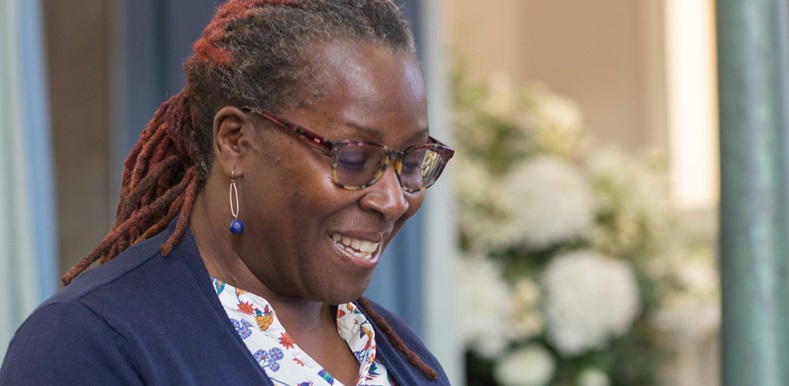Keeping you informed on News and Views within the funeral planning industry
What is a Memorial Service?

Talking about end-of-life arrangements isn’t always easy, but understanding the types of services available can make planning feel less overwhelming. One option that many families choose is a memorial service – a gathering that focuses on remembering and celebrating a person’s life, often without the formality of a traditional funeral.
In this guide, we’ll explain what a memorial service is, how it differs from a funeral and answer some common questions around what to wear and how much a service might cost.
What is a Memorial Service?
A memorial service is a ceremony held to honour and remember someone who has passed away. Unlike a traditional funeral, the body is not usually present, which allows families more flexibility when arranging the service. This means it can take place days, weeks or even months after the death, giving loved ones the time to travel, prepare and create a personalised event.
The format of a memorial service is adaptable. It might include readings, music, photo displays, or personal tributes – there are no strict rules to follow. Families often design the service around the personality, values and wishes of the person being remembered.
The main purpose of a memorial service is to celebrate a life. It offers friends and family the opportunity to come together, share memories and support one another while reflecting on the impact their loved one had.
What Happens at a Memorial Service?
While memorial services can be unique, many follow a similar structure that helps guide the day. A service might begin with words of welcome from a celebrant, minister or family member, followed by readings, prayers or poems that hold special meaning. Music – whether a favourite song, hymn or instrumental piece – is often included to create moments of reflection.
Friends and relatives sometimes share tributes or eulogies, speaking about the person’s character, achievements and the memories that stand out most. In most services, photos or video montages are shown, offering a visual celebration of a life well lived.
The tone of the gathering can vary depending on personal beliefs. A religious memorial service may include scripture readings, hymns and blessings, while a non-religious service might focus more on storytelling, music and memories. In either case, the emphasis is on creating a meaningful space where people can come together to remember and celebrate.
What is the Difference Between a Funeral and a Memorial Service?

Although both occasions are about honouring a life, there are some key differences between a funeral and a memorial service.
A funeral usually takes place shortly after death, often within two or three weeks. The body is present in a coffin or casket, and the ceremony tends to follow a more traditional structure, often shaped by religious or cultural customs, and can feel more formal in tone.
A memorial service does not involve the body being present. This means the service can be held at any time and in a variety of settings, from places of worship to community halls or even outdoors. Families also tend to have greater freedom to personalise the structure and content.
People choosing to have a memorial service will often opt for a direct cremation – a simple cremation without a service. This option gives families more flexibility, both in timing and in how they wish to celebrate a life.
Choosing between the two often depends on what feels right for the family and what best reflects the wishes of the person being remembered. Some prefer the immediacy and tradition of a funeral, while others value the flexibility of a memorial service, which allows more time to gather loved ones together.
How Much Does a Memorial Service Cost?
Planning a memorial service means considering several different cost elements, making it difficult to estimate exact costs. Typical items that contribute to the cost of a memorial service include:
- Venue hire (e.g. community hall, church space, etc.)
- Celebrant or officiant fee
- Catering for the memorial service
- Flowers
- Multimedia and printed materials (e.g. order of service, photo displays)
What to Wear to a Memorial Service
The general rule of what to wear to a memorial service is to dress in a way that shows respect for the occasion. Traditionally, this means darker, more formal clothing (for example, a suit, dress or smart outfit in black, navy or grey).
However, many families now choose to personalise the service and may request something different. It’s not uncommon for a loved one’s favourite colour to be worn, or for guests to dress more casually to reflect a relaxed and celebratory atmosphere. Some services may even encourage bright clothing as a way of celebrating a life lived to the full.
If no dress code is given, aim for a respectful middle ground: choose clothing that is neat, modest and not overly casual, while still allowing for personal touches if you feel comfortable. Ultimately, the focus is on honouring the person being remembered, so wearing something that strikes the right balance between respectful and personal is always appropriate.
Can You Bring Flowers to a Memorial Service?

Bringing flowers to a memorial service is a long-standing gesture of respect and remembrance, and in many cases, it is warmly welcomed. Flowers can provide comfort and add a personal touch to the setting, whether in the form of a bouquet, arrangement or a single favourite flower of the person being remembered.
That said, it’s important to check whether the family has expressed specific wishes. Some may prefer charitable donations instead of flowers, while others might encourage contributions to a memory book, planting a tree or bringing a small keepsake that reflects the person’s life.
The most important thing is to follow the family’s guidance. If flowers are requested, they can be a thoughtful and meaningful tribute. If not, choosing one of the suggested alternatives is an equally respectful way of honouring the occasion and supporting the family’s wishes.
Planning Ahead with a Funeral Plan
Thinking about funerals and memorial services in advance may not be easy, but it can bring peace of mind. By preparing ahead, you can make choices that reflect your wishes, while also sparing your family the emotional and financial strain of having to make difficult decisions at a stressful time.
One of the key benefits of a prepaid funeral plan is that it allows you to fix today’s prices, protecting against the rising costs of funerals in the future. With average funeral costs increasing year on year, this can make a meaningful difference for your loved ones. It also ensures clarity – your family will know exactly what has been arranged and what is covered, reassuring them when they need it most.
At Golden Leaves, we offer a range of funeral plans designed to suit different preferences and budgets. Whether you want the simplicity of a direct cremation followed by a memorial service, or a more traditional funeral with all the details taken care of, our plans provide flexibility and security. Each plan is regulated by the FCA, giving you confidence that your money and wishes are protected.












Share this content...